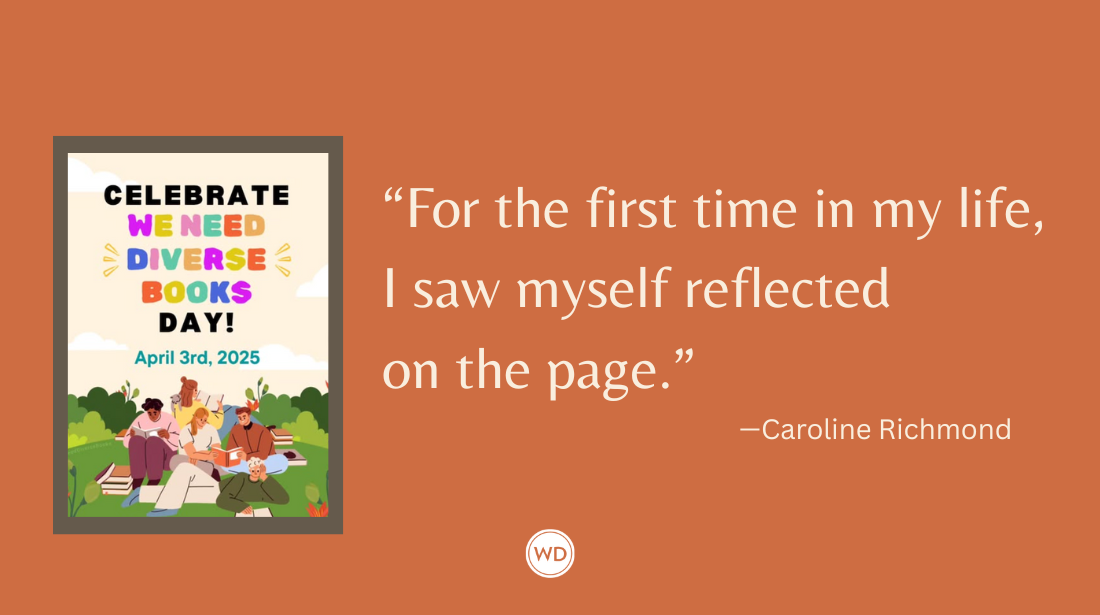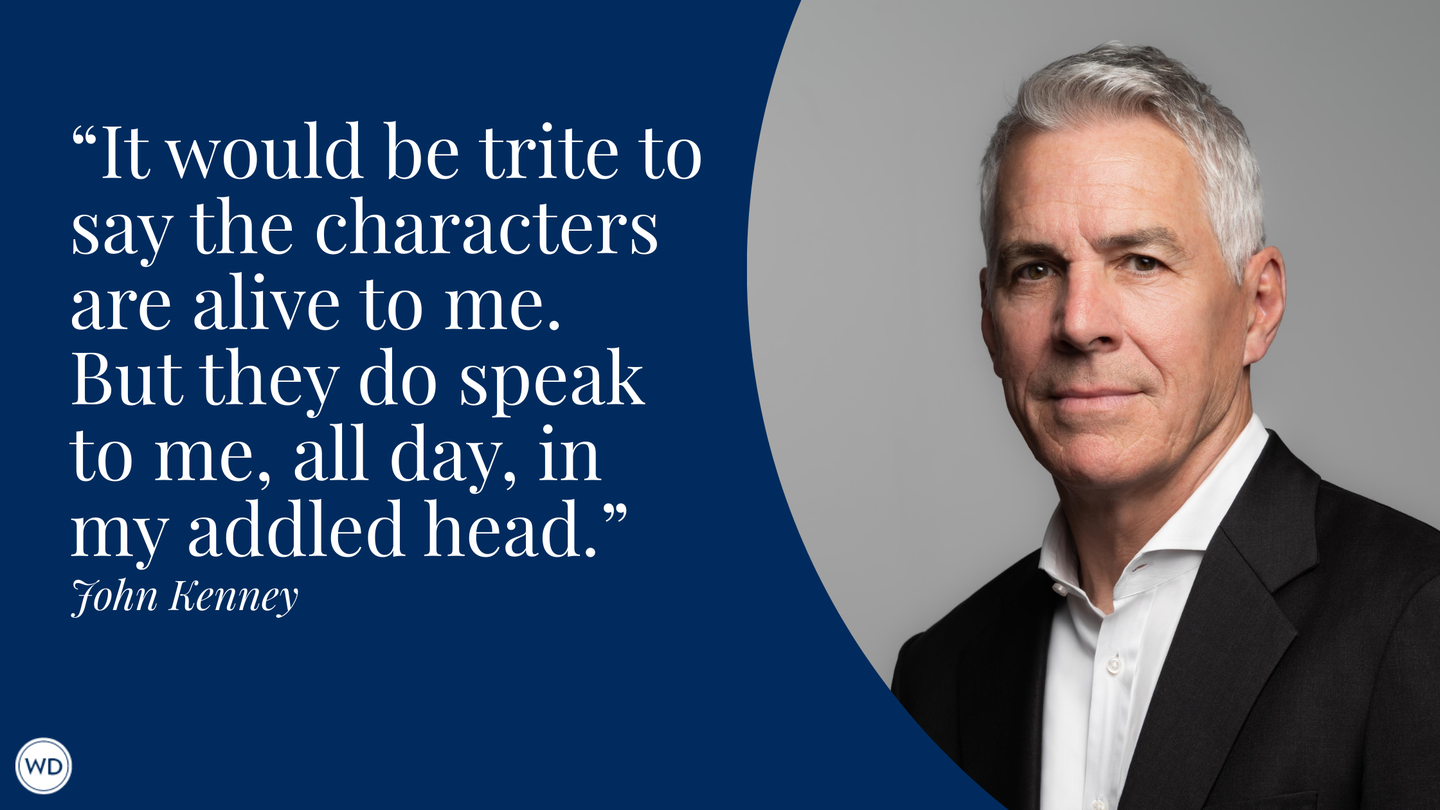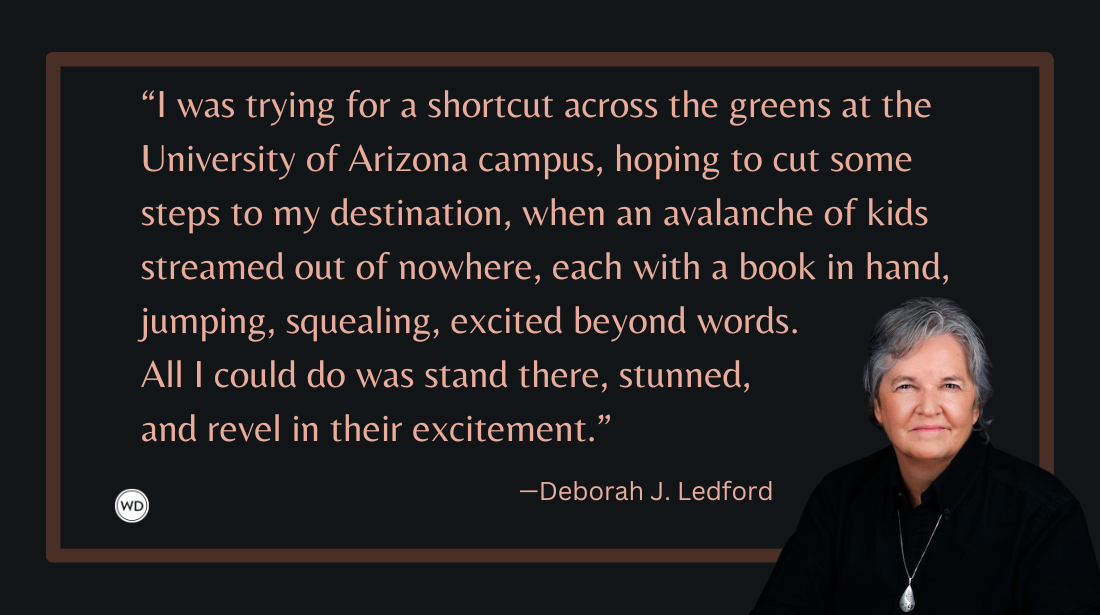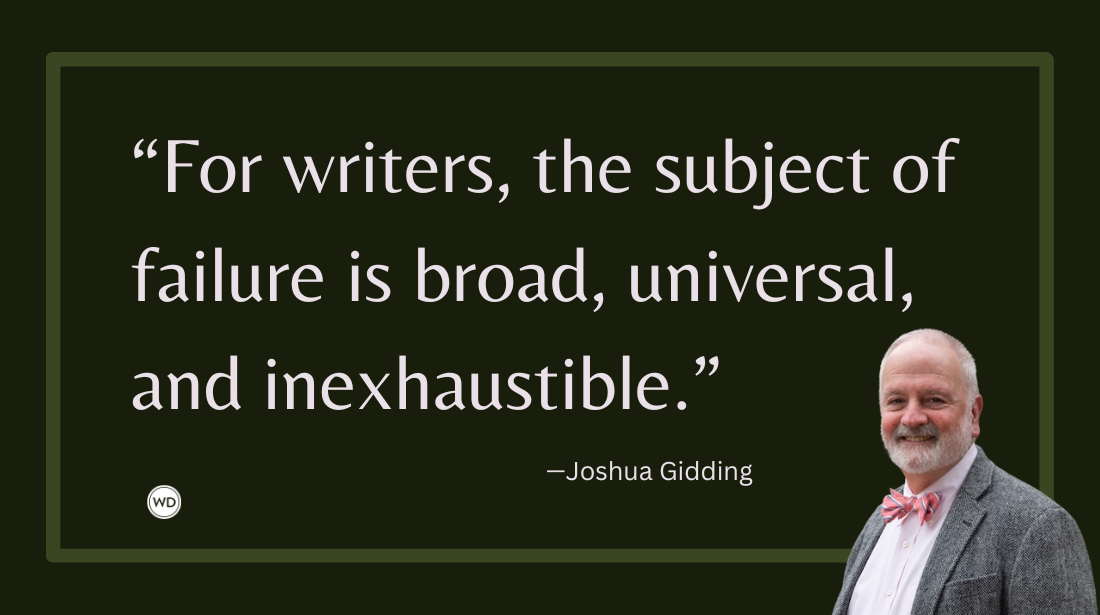Take Control of Your Writing Career
Inspiration to Creation Coach Nina Amir shows how easy it is for a writer’s career to get off-track and outlines simple steps for you to course-correct.
Writers often embark on their writing journeys with great clarity about the direction they want to sail. They feel like the captains of their writing ships. They know what topics they want to cover and the types of writing they want to do. Later, that clarity may wane, though, and their ships may drift off course.
This can happen in a variety of ways. They may mold their writing goals to meet their income needs. Or, a literary agent, magazine editor, or client asks them to write about a different topic, and, before they realize it, that subject is the focus of their body of work. Perhaps, they get the chance to write white papers (instead of novels), science articles (instead of essays), or website copy (instead of prescriptive nonfiction books). Years later, they discover they are docked in a very different port than the one toward which they set sail.
Somewhere along the way, these writers took their hands off the helm. They gave control to someone else or allowed their boats to drift with the tide.
It Can Happen to You
You may think this will never happen to you. But it's easier to lose control of your writing career than you think.
Believe me… I know from first-hand experience.
I lost sight of my writing destination. I stopped navigating my ship. And, as a result, I ended up far from the writing life I dreamed of living, docked in a writing career I did not plan.
For a long time, I blamed others—my agent, editors, even my husband—for the fact that my writing career was off course. However, that did not empower me to take control of my career. Instead, it disempowered me.
Ultimately, I had to take responsibility and acknowledge that I had made all my career choices—no one else. By giving up victimhood, I allowed myself to choose differently and take back the helm. I regained my status as captain of my ship.
How I Got Off Track
Let me explain how I got so far off course. In the beginning, I wanted to write. Period.
In high school, I wanted to be a novelist but was dissuaded from this career choice. Instead, I got a degree in magazine journalism. However, initially, I did more editing than writing magazine articles.
I went on to write and edit for a variety of businesses because it was profitable. I also did some freelance writing—articles, television parade scripts, advertising copy, newsletters, and the like. Then, after being asked to edit a book, I became a book editor.
After several years of editing books, I decided to write one of my own. I had an idea for a spiritual prescriptive nonfiction book. I found a literary agent to represent me and the book. A few months later, she directed me to write books on nonfiction writing and publishing. Before I knew it, I'd written three traditionally published and nine self-published writing guides.
What about the spiritual books I set out to write? They remained unpublished almost a decade later. And the magazine articles? They fell by the wayside. Even the manuscript for a novel remained unedited or published.
How did this happen?
I let my desire to get traditionally published sway my decisions. I allowed myself to be influenced by those who seemingly knew more than I about developing a successful career as an author.
I also allowed pressure to earn a more significant income to determine how much time I spent writing. As a result, I built a business around my books that gave me little time to write.
Why Writing Feels Hard
Some writers don't care what they write about as long as they are writing and getting paid for their work. Others care…a lot. If you are the latter type and feel off track, it's time to put your hands on the wheel…fast!
The longer you remain off course or adrift, the greater the likelihood you will lose your passion for writing. Eventually, you will find writing a chore. The joy you used to feel when you put pen to paper (or hands to keyboard) will be gone.
That's when the writing starts feeling hard, unfulfilling, and like a "should do" rather than a "want to do."
Again, I know this well. But you can retake control of your writing career. You can put on your captain's hat, get out your eyeglass and compass, and plot a new course.
Take Control of Your Career
If your writing career has gotten off track, decide where you want to go now. (The destination might be different than when you began your writing journey.) Check the map, set sail, and navigate the boat to your chosen destination.
Don't waste time blaming anyone or anything for where you find yourself now. That's easy to do, but it isn't how you take back the helm. In fact, blame and the victim mentality that goes with it give your control away.
The way to captain your ship is to do something more challenging: take responsibility. Admit that you gave up the wheel or allowed the boat to drift. That's how you ended up where you are now. You chose to have the writing career you've had or have to date.
The good news is that you can take control of your writing ship! Put your hands on the helm. Be responsible for getting to a destination of your choosing.
In less nautical terms, decide what to write about, for whom, and when. Then take the necessary steps to accomplish your writing goals.
Make New Choices
The New Year is approaching. This is a great time to rethink your writing career and make new choices. In fact, decisions put you in control.
If you aren't sure what choices you made in the past, look at your writing life and career. You will see the choices you made right in front of you. The topics about which you wrote, the income you created, the incomplete and complete writing projects—all of these are a result of your past choices. Take responsibility for them.
If you don't like what you see, make a different choice. That's how you create some new results going forward.
What are your writing goals and dreams now? Once you have decided on or re-clarified what you want, consider what choices will lead to creating that writing career.
Here are some questions to help you make choices that help you take control of your writing career:
- Do you want to write a book or write for clients?
- Do you want to pitch publications or businesses?
- Do you want to work on your author platform or produce "Morning Pages"?
- Who do you want to "be" as a writer?
- What do you want to write about?
- What do you want to do to move your career forward?
- What habit do you want to develop to help you achieve your writing goals?
Level Up Your Inspiration, Motivation, and Creativity
When you take control of your writing career and get it back on track, you will find yourself feeling more inspired, motivated, and creative. Writing on topics that interest you, developing meaningful projects, and revolving your writing projects around your passion and purpose provides the wind to fill your ship's sails. Then it is much easier to navigate your boat toward a port of your choice.
You will discover the joy of writing again. Words will flow to you easily. You'll also create more-desirable results and move toward your destination faster.
If you are ready to write about topics that matter to you and embark on a writing journey that ends in your dream location, take control of your writing career. Chart a new course. Pick up the anchor, put your hands on the wheel, and set sail.
Nina Amir is known as the Inspiration to Creation Coach. As one of 800 elite Certified High Performance Coaches working around the world—the only one working with writers, she helps her clients Achieve More Inspired Results. She helps all types of creators get from the light-bulb moment to the realization of their dreams without letting anything get in the way of that goal.
Nina is also an Author Coach who supports writers on the journey to successful authorship. She has authored three traditionally published books for aspiring authors, How to Blog a Book, The Author Training Manual, and Creative Visualization for Writers, as well as a host of self-published books and ebooks, including the Write Nonfiction NOW! series of guides. She has had 19 books appear on the Amazon Top 100 List and as many as six of her books on the Authorship bestseller list at the same time.
Nina is the founder of the Nonfiction Writers’ University, the Write Nonfiction in November Challenge, and the Author of Change Transformational Programs. She also created a proprietary Author Training curriculum and Author Career Planning program.
For more information, visit NinaAmir.com or BooksByNinaAmir.com.








